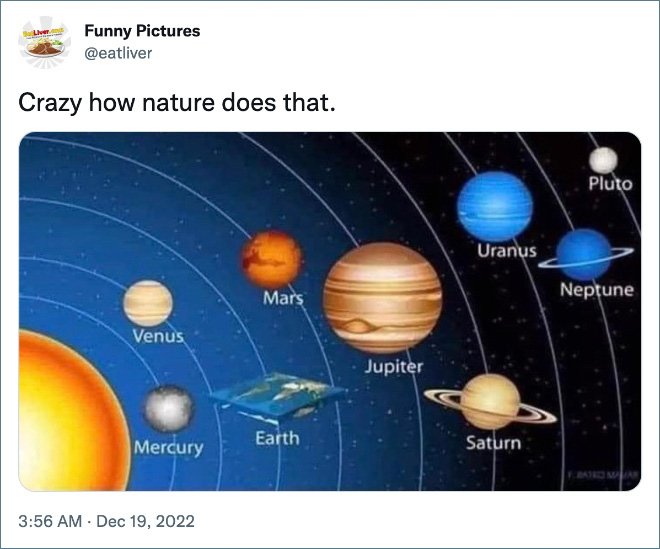Darwin had wrote “On the Origin of Species by Means of Natural Selection“.
Some of us had mistakenly understood ‘evolution’ as being a ‘fight for survival’.
‘Fight’ as in ‘kill/subdue all those around you’, not ‘strive to improve yourself’, unfortunately.
Ernst Mayr had put things right. ‘Evolution is not about the survival of the fittest but about the demise of the unfit.‘
Adam Smith, a philosopher, had explained to us that free market capitalism functions because ‘the butcher, the brewer and the baker‘ cooperate across their respective ‘professions’, fully understanding that by respecting each-others work each of them would better serve their individual interests than by struggling individually.
Unfortunately too many of his contemporaries, and some later exegetes, mistook Smith’s words as meaning that ‘Greed is Good’.
And proceeded accordingly. Which was just another ‘application’ of Gresham’s Law. The ‘greedier’ among the capitalists slowly climbed to a dominant position and created a situation later described as ‘savage capitalism.’
Since people have a tendency to over-react, and to make matters worse instead of solving the problem, Karl Marx came up with an even more stupid idea than ‘Greed is Good’. According to him, the world should be run, in an equally authoritative manner, by a different class of people. Not by the ‘greedy capitalists’ but by the ‘virtuous communists’.
As if there ever was any real difference between dictators…
Almost a century later than Smith, Emil Durkheim, a sociologist, revisited the concept of ‘cooperation’ – from another angle, and demonstrated that society had leaped forward when each of its members developed his/hers particular talents instead of toiling together indiscriminately. And then traded, on the free market, the results of their efforts. Nothing really new, just told in a different manner.
A marked difference from the ‘rantings’ of Marx. Who, by the way, had assessed the situation perfectly. Which makes it all the more baffling the fact that he was able to propose such aberrant remedies.
Almost simultaneously with Durkheim, another guy had noticed two very interesting things. After a successful career as an engineer Vilfredo Pareto had started to study economics. Then he turned his attention to sociology. As an economist he had noticed the Pareto Principle – 80% of the results (income) are produced by 20% of the causes (agents), while as a sociologist he discovered that whenever social mobility, upwards as well as downwards, is hampered, the society where this happens will, sooner rather than later, experience serious difficulties. In fact this observation is quite straightforward. Whenever young people from the ‘lower strata’ cannot accede, despite being better qualified and harder working, to more meaningful positions because those positions are ‘safeguarded’ for members belonging to the ruling minority, the people from the lower strata stop striving while those from the ruling minority become lazy and careless. The recipe for disaster, don’t you think?
If we put both Pareto’s observations together we discover something similar to Smith’s budding concept of a free market. Whenever an individual, or a group of individuals, become so powerful as to dwarf those around them, economically as well as politically, the free market, economically as well as socially, stops working.
That’s why all monopolies have never failed to collapse.
That’s why all authoritarian regimes, including those built according to Marx’s rantings, have eventually failed – causing great harm to those fool enough to believe in them.
That’s why dinosaurs had disappeared – they had grown too big for their own good.
They behaved as if they were ‘greedy’. They seemed more interested in dominating the world instead of minding their own business.
Fishes – which are older than dinosaurs – survived and thrived.
Crocodiles, alligators, turtles, tortoises, snakes and you name whatever other reptiles come to your mind have survived the same conditions that have cut the mighty dinosaurs down to size.
That’s why Mayr goes on warning us. ‘Evolution is not about the survival of the fittest but about the demise of the unfit.‘
Let’s not destroy ourselves, as a species, attempting to prove him wrong.
Update
Pareto’s elite theory is rather straightforward.
As soon as a society ‘grinds to a halt’ tension starts to build up. A ‘lion’ – or a coalition of lions, will sooner or later seize the opportunity and ‘make a grab for it’.
By tearing the calcified sinews which tied the society down the lions actions unleash – for the moment, at least, the creative forces that could not assert themselves. Things become markedly better than they used to be.
Because the lions are ‘lazy’ they soon hire ‘foxes’ to run the show. Unfortunately the foxes tend to be rather narrow minded and soon their narrow-mindedness coupled with the decrepitude of the lion ‘in charge’ bring back the society to the original – aka bogged down, situation.
A younger lion/fresh coalition of lions restarts the cycle.
Basically we have the definition of the boom-bust cycle.
A very compelling example would be the manner in which communist states had crumbled under their own weight. Or the manner in which all monopolies – or even companies in dominant positions, eventually screw up. The automobile industry – a mature economic field, would be a very good example for this.
Nothing dramatically different from Schumpeter’s ideas, albeit at a different scale.
Ideally, in a free (aka fully functional) ‘market’ there are a number of lions which keep each-other at bay and a big enough number of foxes to keep the show together. The lions, acting in concert, make sure that the foxes do not take over while the foxes prevent the lions from driving the whole thing over the cliff.
If the circulation of the elites is hampered, in any way, shape or form, the continuous/evolutionary social and economical fine tuning no longer works and the society reverts to the boom-bust cycle.
A really free market would closely resemble Darwin’s, or more exactly Mayr’s, evolution while the present situation is one where the circulation of the elites has been brought almost to a halt.
The whole process tends to be rather ‘circular’. As in a vicious circle.
Or a virtuous one. As it used to be, until very recently.
NB. This blog is more like a collection of notes than anything else.
I write them down because doing this streamlines my thinking process and I make them public because readers’ feed-back (mostly on FB) is very helpful.











